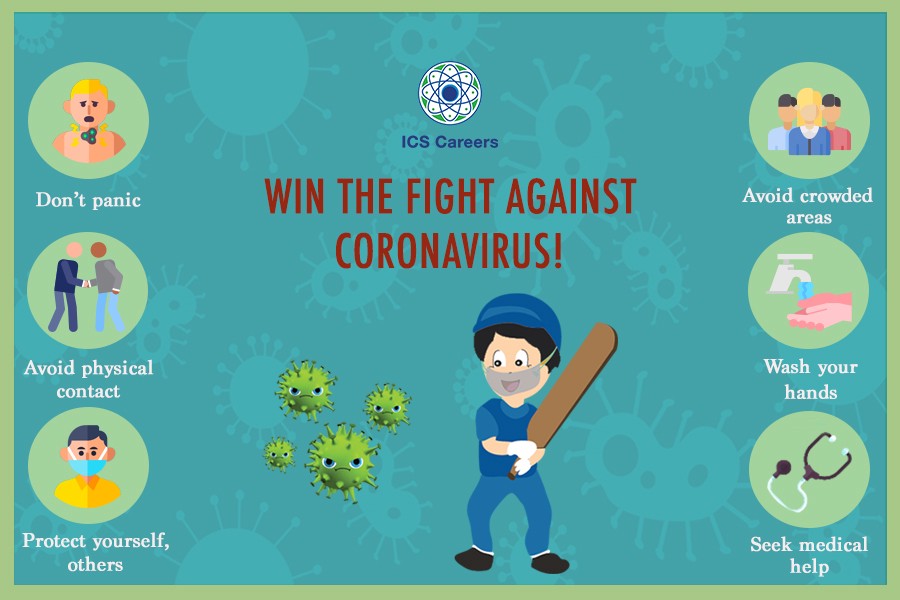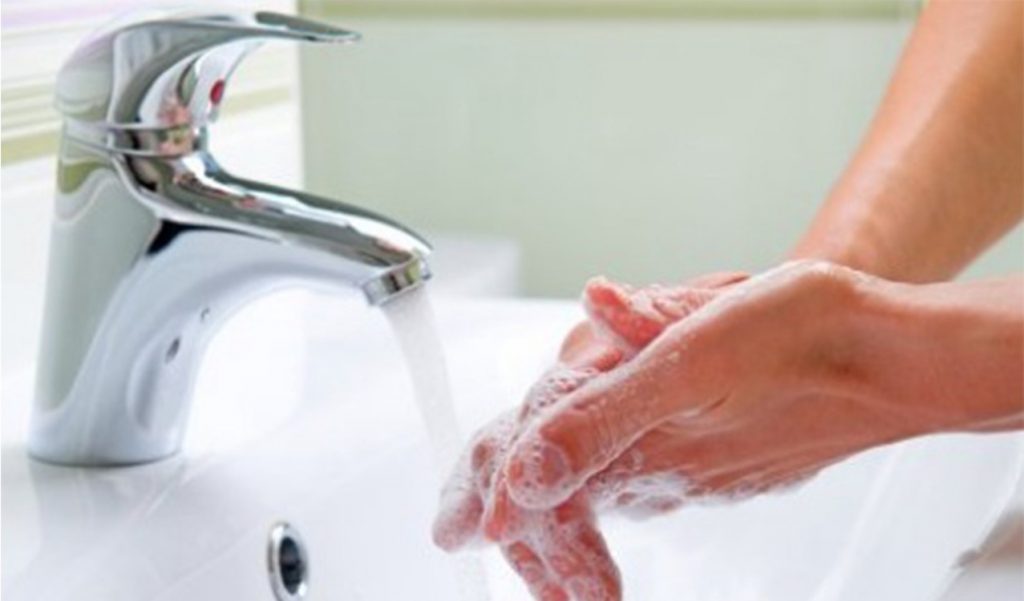
The scare of the COVID-19 or the Novel Coronavirus has added to the various challenges that students have to face in their daily lives.
The World Health Organisation (WHO) has now declared the outbreak a pandemic (worldwide spread of a disease) with 118,000 cases, more than 4,000 deaths and the virus travelling to all continents except Antarctica. Panic levels are, expectedly, high!
It has also caused unforeseen disruption in the working of schools and offices.
What is really needed in this time of constant information (and misinformation) is to cut through all the noise and look at facts.
Don’t get misled by hoax social media posts.
AWARENESS in the time of such a pandemic can help keep us safe.

How is COVID-19 transmitted?
Just as with the common cold or the flu, if a COVID-19-infected person coughs or sneezes, they release contaminated droplets into the air. Not only can these droplets be inhaled by others, they can also settle on surfaces in the vicinity of the infected person, where the virus can remain alive for as many as four days. If others were to touch any of these surfaces — computer screens, phone screens, tables, doorknobs, etc — and then touch their own face (mouth, nose, eyes), the infection would be transmitted to them.
Hygiene is your Best Defense

Here’s a WHO checklist backed by expert opinion:
· Wash your hands at regular intervals, wherever you are. Check this video to learn how to wash your hand https://www.youtube.com/watch?v=seA1wbXUQTs
· Take special care to clean your hands and face after you visit public / shared spaces, such as malls, offices, schools, hospitals, etc.
· Don’t touch your eyes, nose and mouth.
· If you have a cold or are sneezing, take care to keep away from others. When in public, wear a mask to avoid infecting others. Get more information here https://www.youtube.com/watch?v=Ded_AxFfJoQ
· Avoid handshakes and hugs.
· Seek immediate medical help if any disease-related symptom surfaces. Watch this video to know about COVID-19 infection symptoms — https://www.youtube.com/watch?v=oGruT7Fd54E
What can Schools and Parents do?
· Talk to children about Coronavirus infection and create awareness about the importance of maintaining good hygiene.
· Encourage children to wash hands regularly. You can also incentivise the practice i.e. announce small prizes for children for following a good hygiene routine.
· Avoid getting children together in large gatherings / groups.
· Immediately report if a child develops any disease-related symptom and seek medical care.
· Make optimum use of technology to ensure that students don’t suffer academically and assignments are submitted on time.
· Parents can also look into relaxing screen-timefor their wards till the storm passes over and life gets back to normal.

Finally, avoid all non-urgent travel — not only to prevent contracting the infection but also to save yourself the trouble that may come from queuing up for medical screening or worse, being quarantined.
If you must fly, watch this video https://www.youtube.com/watch?v=0KBvReECRrI for travel advice.
Further watch: How do Coronavirus tests work? https://www.facebook.com/ScienceNaturePage/videos/284548919182641/?vh=e&d=n
Do let us know if you liked this article. Share your suggestions as comments below!
. . .
Download our mobile app, ICS Career GPS, a one-stop career guidance platform.
. . .
Like this post? For more such helpful articles, click on the button below and subscribe FREE to our blog.




